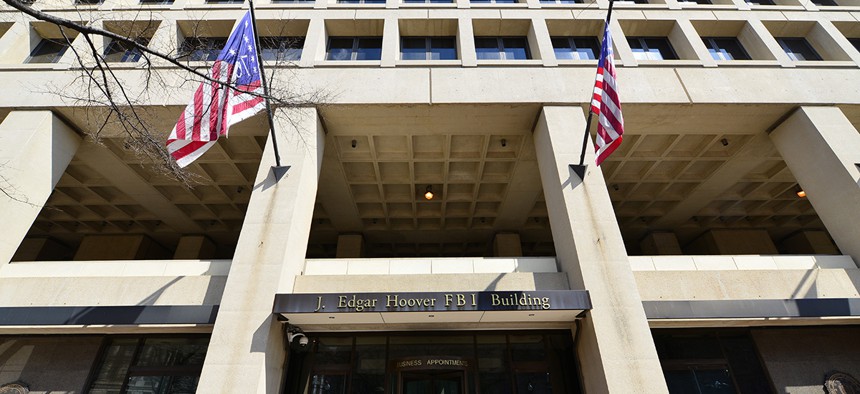Senators Introduce Bill to Delay Expansion of FBI Hacking Powers

Richard Cavalleri/Shutterstock.com
The bill, which will allow judges to issue hacking warrants outside their districts, will take effect Dec. 1 if it’s not delayed.
Five Republican and Democratic senators introduced legislation today to delay a controversial change to criminal search procedures that could allow the FBI to drastically increase its hacking operations.
The legislation, proposed by Senate Judiciary Committee members Sens. Chris Coons, D-Del., Mike Lee, R-Utah, and Al Franken, D-Minn., among others, would put a nearly nine-month pause on the new rule, which would allow a single judge to issue a warrant allowing police to hack into computers in multiple judicial districts rather than just the district in which that judge presides.
Judges could also issue warrants to search a computer or device when the user has masked the device’s location under the new rule, an update to Rule 41 of the Federal Rules of Criminal Procedure.
» Get the best federal technology news and ideas delivered right to your inbox. Sign up here.
Companion legislation was introduced in the House by Judiciary Committee ranking member John Conyers, D-Mich., and committee member Ted Poe, R-Texas.
The rule change was approved by the Supreme Court in April and will take effect Dec. 1 unless Congress intervenes.
“While the proposed changes are not necessarily good or bad, they are serious and they present significant policy concerns that I think warrant careful consideration and debate,” Coons said while introducing the bill, noting neither the Senate nor the House has held a hearing focused on the imminent change.
“The body of government closest to the people has failed to weigh in at all on an issue that immediately and directly impacts our constituent rights,” Coons said.
Senate Judiciary Chairman Chuck Grassley, R-Iowa, “appreciates the feedback he is receiving on the Rule 41 changes,” a spokesman said before the bill’s formal introduction, but did not commit to holding hearings on the issue during the lame-duck session.
“The proposed rule change is the product of a years-long discussion culminating in the Supreme Court’s approval of the changes and transmittal of them to Congress in April,” Press Secretary Taylor Foy said.
Other sponsors of the delay bill are Sen. Ron Wyden, D-Ore., a longtime foe of expansive government surveillance powers, and Steve Daines, R-Mont.
The bill sponsors were among 11 senators and 12 House members who signed an Oct. 27 letter to Attorney General Loretta Lynch seeking more information about the change including how the department will prevent prosecutors from “forum shopping” for warrant friendly judges and how it will prevent damaging the computers of innocent bystanders.
The lawmakers are still awaiting a reply, Coons said.
The Justice Department says the change will speed investigations of digital crimes including child pornography while digital rights activists say it violates Fourth Amendment protections against unreasonable searches and would erode privacy rights.
Delaying implementation of the law is particularly important as the Obama administration hands the reins of power to the Trump administration, which may take a more aggressive approach to digital law enforcement, Gabe Rottman, deputy director of the Center for Democracy and Technology’s Freedom, Security and Technology Project, told Nextgov.
“I think it’s crucial that the legislation to delay implementation is passed and passed soon,” Rottman said. “There’s not been an appropriate conversation about this.”
Another possible use of the expanded power would be to investigate and disrupt botnets—armies of hundreds or thousands of computers or other connected devices that have been hacked without their owners’ knowledge and ordered to attack a target. Such an operation could involve meddling with thousands of computers across the U.S. without users' permission and perhaps without their knowledge.
“If we fail to stand up for our constituents here, someday they’ll look back at us and say, ‘what were you thinking? Why did you vote to allow my phone to be hacked?’” Wyden said while introducing the bill. “And you’ll say, colleagues, that you didn’t vote at all. In fact, what you did was worse. You dropped the ball, and didn’t pay enough attention.”






